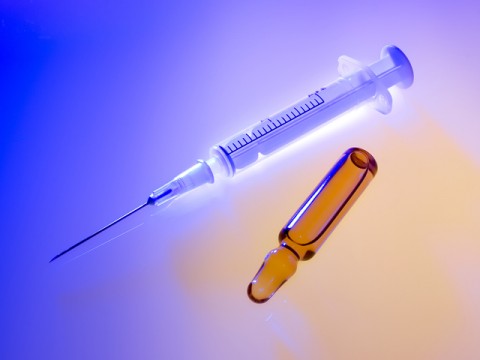Pertussis Vaccine is Meant for the Second or Third Trimester
The Centers for Disease Control and Prevention (CDC) recommends that all pregnant women receive the Pertussis vaccine in the second or third trimester. Pertussis, more commonly known as whopping cough, is a highly contagious illness that can cause permanent problems in babies, and even death.
Between 2000 and 2009, there were 194 cases of whopping cough in the United States. Out of these cases, 152 were infants under one month old. Twenty-three babies, aged 2 to 3 months, died from this disease. In 2009, a pertussis epidemic broke out in California when more than 1,500 people were diagnosed with the disease. Six babies died from pertussis. All of the infants were under three months old.

Because babies cannot be vaccinated against pertussis until they are 2 months old, giving pregnant women the pertussis vaccine has a twofold benefit: you protect both mother and baby from this potentially deadly illness. When a pregnant woman gets the pertussis vaccine, she may pass the antibodies against whopping cough to her developing baby. As a result, her baby has more protection after birth.
Is the Pertussis Vaccine Safe in Pregnant Women?
The pertussis vaccine is considered safe in late pregnancy. Like other vaccines, it’s not recommended for the first trimester, since this is the most critical time in fetal development when all of the major organs are developing and the risk for birth defects is the highest. There is no evidence that giving pregnant women the pertussis vaccine is harmful, since the vaccine is made of an inactivated (or “killed”) virus.
(It is not recommended that pregnant women receive a vaccine with a live virus. For example, the measles-mumps-rubella (MMR) vaccine should never be given to pregnant women, since it contains live viruses and may potentially harm the developing baby.)
The CDC does have one concern regarding pregnant women and the pertussis vaccine. The mother’s antibodies may interfere with the baby’s immune response to the infant doses of pertussis vaccine, which are administered at 2 months, 4 months, and six months. There is a possibility that this leaves the baby less protected against whopping cough.
However, the benefit of the pertussis vaccine in pregnant women outweighs any hypothetical risk.
Why is Pertussis (Whopping Cough) Dangerous?